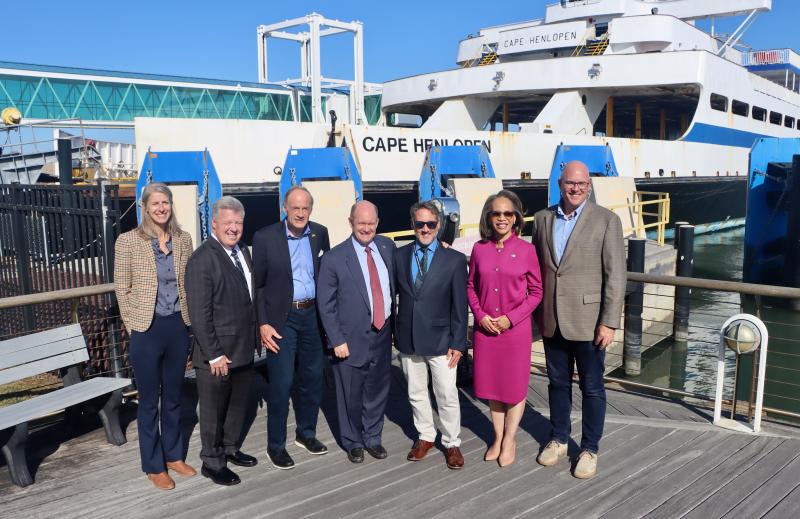Hybrid Cape May-Lewes ferry on the horizon

A new generation of cleaner Cape May-Lewes Ferry boats is on the horizon, thanks to a $20 million federal grant.
Members of Delaware’s congressional delegation visited the Lewes ferry terminal Oct. 23, to announce funding that will go toward the first diesel-hybrid boat in the fleet.
The Delaware River & Bay Authority said the new technology will reduce carbon dioxide emissions by 2,025 tons per year. The new engines will reduce fuel consumption by 35%.
The new ferry could have the ability to operate on battery-only power. It will replace a 40-year-old diesel ferry.
Sen. Chris Coons recalled watching the ferries from his in-laws’ home next to the Lewes terminal.
“When the ferry would warm up, it would let out a huge cloud of black diesel smoke. No more. This grant will put in place a new, state-of-the-art ferry that will be low-emission and sustainable for the long term,” Coons said.
Heath Gehrke, director of Cape May-Lewes Ferry operations for DRBA, said the final price tag for the new ferry will be about $74 million. He said a hybrid ferry is 20% to 30% more expensive than a diesel boat, so this grant goes a long way toward that goal.
“This grant provides the impetus for the green portion of this ferry. I don’t think we would be moving forward with the green portions without this grant, “ Gehrke said.
Besides being cleaner for the environment, the new ferry will have modern amenities. Gehrke said there will be an outdoor lido bar and an elevator that goes all the way down to the car deck.
He said the new ferry will be slightly smaller than the vessels in the current fleet, with a capacity of 400 passengers and 75 vehicles.
He said infrastructure for a charging system will have to be built at both the Lewes and Cape May terminals. But, he said, any other infrastructure changes will be minimal.
Gehrke said the ferry design will be finalized by the end of this year, with bidding and awarding of a contract happening in the middle of 2025. With some luck, he said, the new ferry will be in service in mid-2027.
Ideally, he said,the future fleet would have four, smaller ferries, but it depends on how much growth there is in ferry traffic over the next several years.





















































